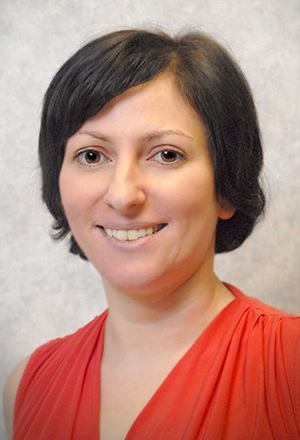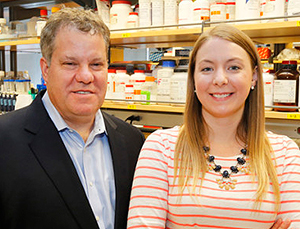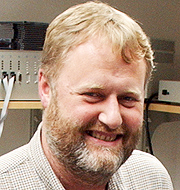Uncategorized
-

Electric Charge Transfer-Based Control of DNA Replication
DNA replication actually starts with the synthesis of a short stretch of RNA by the enzyme DNA primase. Extension of the RNA with a similarly short stretch of DNA by DNA polymerase α (pol α) follows before the more efficient and highly processive DNA polymerases take over to finish the… Read MoreMar. 7, 2017
-

Fesik Lab Expands Collaboration with Boehringer Ingelheim for Difficult-to-Treat Cancers
A multi-year program with pharmaceutical company Boehringer Ingelheim complements an already existing collaboration with Vanderbilt University by focusing on the research and development of small molecule compounds targeting the protein SOS (Son of Sevenless). This molecule activates KRAS, a molecular switch that plays a central role in the onset of some of… Read MoreMar. 6, 2017
-

Investigators seek new way to define cell identity
Jonathan Irish, Ph.D., and his colleagues have developed a new language, one that can be used to describe and identify cells. The language — marker enrichment modeling, or MEM — assigns a “MEM label” to cells based on certain features of the cell, usually proteins. Irish and his colleagues hope that MEM,… Read MoreMar. 3, 2017
-

Team identifies ‘switch’ involved in DNA replication
DNA replication is an extraordinarily complex multi-step process that makes copies of the body’s genetic blueprint. It is necessary for growth and essential to life. Now researchers at the California Institute of Technology (Caltech) and Vanderbilt University have found evidence that one of those steps may involve the telephone-like transmission of… Read MoreMar. 3, 2017
-

Bacterial signaling systems
Bacteria respond to their environments – to ensure their own survival and proliferation – using two-component systems (TCSs). These systems consist of a bacterial receptor and a response regulator that changes bacterial behavior by modifying gene expression. Most bacterial receptors and response regulators are exclusive pairs that do not interact… Read MoreFeb. 6, 2017
-

New target for chronic infection
The greatest risk factor for gastric cancer is chronic infection by the bacterium, Helicobacter pylori. In a study in mice published by the Proceedings of the National Academy of Sciences, Dana Hardbower, Keith Wilson, M.D., and colleagues found that macrophage activation has a critical role in regulating H. pylori colonization and gastric inflammation. … Read MoreFeb. 6, 2017
-

Ohi Selected as 2017 Chancellor Faculty Fellow
Twelve outstanding faculty members from across the university have been named to the 2017 class of Chancellor Faculty Fellows. The class comprises highly accomplished, recently tenured faculty from the social sciences, life and physical sciences, clinical sciences and humanities, as well as law, mathematics and engineering. Melanie Ohi is an associate professor… Read MoreFeb. 6, 2017
-

Hasty named to new VUSM Basic Sciences role
Alyssa Hasty, Ph.D., professor of Molecular Physiology and Biophysics, has been named Associate Dean for Faculty Development for Basic Sciences at Vanderbilt University School of Medicine. Hasty has devoted much of her career to mentoring and encouraging students and junior faculty members. She was one of the founding members and… Read MoreFeb. 3, 2017
-

Gene mutation discovery may hold autism clues: study
Researchers at Vanderbilt have identified what may be a genetic “smoking gun” for autism spectrum disorder (ASD) — a mutation in the gene for the critical neuronal protein CaMKII. While no single mutation can explain the immensely complicated picture presented by ASD, this study is the first to link a… Read MoreFeb. 3, 2017
-

Casagrande recalled as neuroscience pillar, supportive mentor
Vivien Casagrande, Ph.D., a neuroscientist and professor at Vanderbilt University School of Medicine noted for her contributions to the visual sciences, died peacefully at her home on Saturday, Jan. 21, surrounded by her husband, James Andrew “Mac” McKanna, and sons James and Paul McKanna. She was 74. Known internationally for… Read MoreJan. 26, 2017